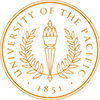Planning your college fund is a challenging endeavor. Finally breaking your precious piggy bank won’t be enough; you need to find other sources of funding too.
Education overseas can be financially demanding. And if you’re studying near the city center, the cost of living may be very high.
To make sure that you’re financially covered for the duration of your studies, you must secure sources of funds in different ways.
Here are some potential sources of funding that you can explore if you’re planning to study abroad:
From Your Home Country
You can receive funding from your own home country in the form of scholarships and grants. You can also apply for student loans in your home country.
These financial aids can be granted by your country’s national government or local and provincial governments. When you are granted any financial aid from your country’s government, you may be asked to agree to return to your country after graduating.
From Nongovernment Organizations
Non-government organizations also offer financial assistance in the form of scholarships. They offer either need-based, merit-based, or both types of scholarships.
Scholarships from NGOs are usually offered to a specific group of students classified based on gender, sexual orientation, race, and religion.
From International Organizations
International organizations including the United Nations and World Health Organization offer financial aid to international students. Scholarships offered by international organizations are more competitive, so you must apply early.
From the Government of the Host Country
In order to gain cultural capital, countries implement efforts to encourage talented students all over the world to study in their country.
These efforts involve offering scholarships and grants to international students. If you don’t qualify for a scholarship offered in your home country, you can research scholarships offered by the country you’re studying in.
From Student Loans
Student loans can also be a great alternative to scholarships and grants. If you find it difficult to land a scholarship grant, you can borrow money from the government or from private lenders.
Just make sure to check the terms and interest rate of the loan you’ll be taking out. Make sure that it’s sufficient to fund your tuition and daily expenses.
From Your Own Family
According to the Institute of International Education, 65% of international students are financially supported by their own families.
If you’re privileged to be a part of a financially stable family, ask your parents and relatives if they can fund your studies. Also, offer to put in extra effort to look for other sources of funds if they cannot cover the full cost of your studies.
From Your Part-Time Job
Part-time jobs are a great way to save up money to fund your education. If you have been working while you’re still in your home country, you can save up extra cash daily until you have enough.
You can also work part-time once you get to the country you’ll be studying in. Some institutions allow their students to engage in part-time work.
Check with your school and the requirements in their country to see if you’re eligible to apply for part-time work while you’re studying.
Students who want to study abroad must have different sources of funding to cover tuition and other expenses. Read more of our articles here at MSM Unify to learn how you can get funds to study internationally.















































